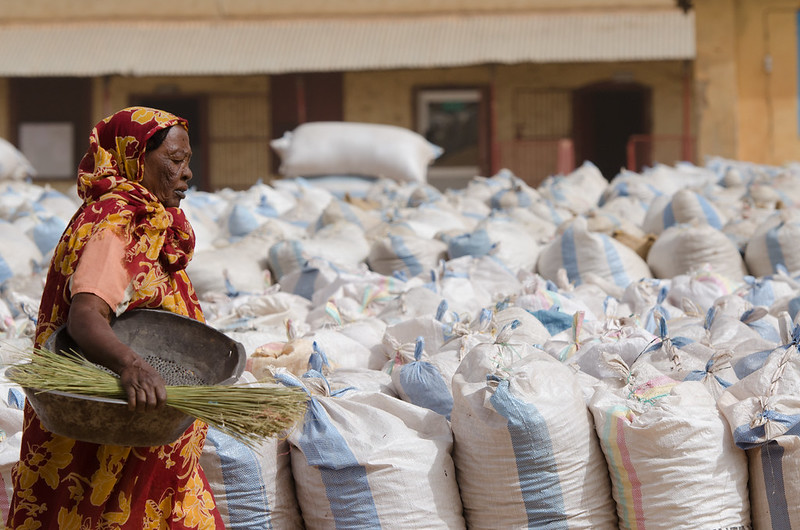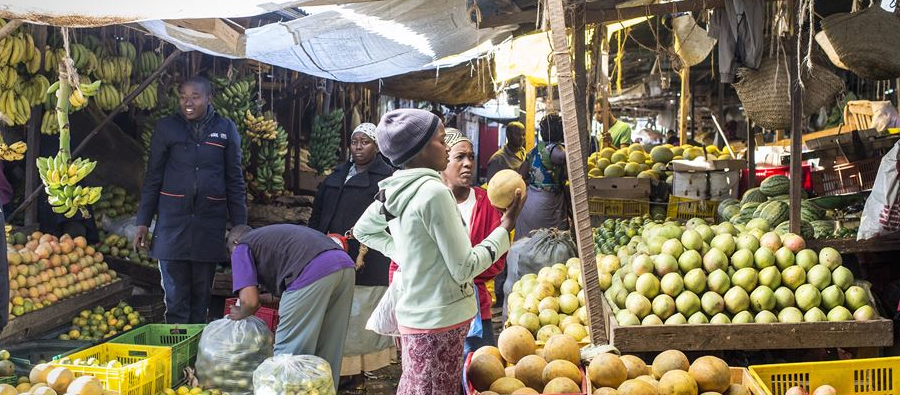The World Trade Organisation’s (WTO) ongoing trade negotiations on agriculture have a key role to play in helping establish fairer and more equitable food markets which in turn would help reduce global hunger and malnutrition and support the fight against climate change, says WTO’s Deputy Director-General Jean-Marie Paugam.
The Emirates Declaration on Sustainable Agriculture, Resilient Food Systems, and Climate Action comes as a new wake-up call. We need to improve the sustainability of our food systems. The climate crisis cannot be kicked down the road. Neither can hunger and malnutrition or the environmental challenges facing the food and agricultural sector.
There is no time for complacency. The challenges facing our food systems have been overwhelmingly documented. Close to 10 per cent of the world’s population is facing hunger — or between 690 million and 783 million people. At least $10 trillion are lost in “hidden costs” — due to unhealthy diets, environmental costs, poverty and undernutrition.
More frequent, intense, long-lasting extreme weather events, changing temperature and precipitation are reshaping agricultural production patterns. Over one-fifth of total greenhouse gas emissions come from agriculture, forestry and other land use.
How do policies affecting trade and markets matter?
Markets for food and agriculture remain highly distorted. Current policies incentivise unsustainable production and consumption patterns, especially in the absence of adequate environmental regulations. The Organisation for Economic Cooperation and Development (OECD) has just released new numbers showing the scale of the challenge.
From 2020 to 2022, positive support to individual producers amounted to $630 billion per year on average. This includes budgetary outlays — but also higher food prices resulting from border measures such as tariffs.
The distortions on food markets are compounded by those in the energy sector. Some WTO members have highlighted the particular importance of fossil fuel subsidies in undermining progress towards environmental goals. Price spikes affecting people in food-importing countries may be aggravated by unjustified export restrictions.
Consumers on low incomes and vulnerable countries are among those shouldering the additional burden of these policies. At the same time, poor consumers in many countries lack adequate safety nets. And governments are underinvesting in the types of support that can boost farm productivity sustainably without distorting markets.
Trade negotiations have a key role to play in addressing these shortcomings
Fairer and more equitable markets would help reduce hunger and malnutrition as well as support the fight against climate change. There are three illustrations of what is at stake and what would be possible.
First, strengthening food security. This requires keeping trade flows open and transparent by monitoring trade restrictions and ensuring that the most vulnerable consumers in particular can access the food they need. It also requires finding the right balance between easing trade and supporting producers’ livelihoods. This is one key issue today for WTO negotiations.
Second, decarbonising the food and agriculture sector. The transition to a low-carbon economy changes the patterns of comparative advantage. As Ralph Ossa, the Chief Economist at WTO likes to put it, countries become encouraged to specialise on what they are “greener at”.
WTO’s trade negotiations offer a lot of relevant tools. In the food and agriculture sector, repurposing trade-distorting support toward pro-climate objectives could release fiscal resources that may help reduce its carbon footprint and optimise the use of natural resources. Energy sector reforms, including facilitating trade in Agri-based alternatives to fossil-based energy and materials, could, under certain conditions, contribute to the same.
Third, fostering access to pro-climate agricultural innovation. By removing distortions, opening markets and promoting convergence of product standards based on international references and sound science, trade policy reform can act as a booster for innovation in climate-smart agriculture and dissemination of related technologies. Strengthening investment in farmer advisory services, rural infrastructure as well as research can help ensure new and existing techniques to support sustainable productivity growth end up in farmers’ hands.
All this can be done at national, regional and global levels simultaneously. For trade policies to meaningfully support sustainable food systems, we need to succeed in revitalising agricultural trade reforms.
This piece was initially published on WTO and has been revised to suit Farming First’s editorial guidelines. Read the full piece on the DG’s remarks at COP28 on WTO.
Header photo: Salahaldeen Nadir / World Bank



